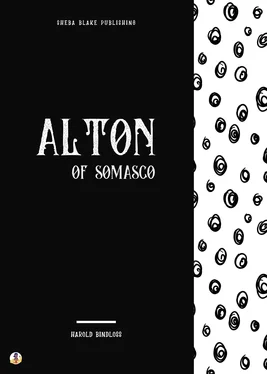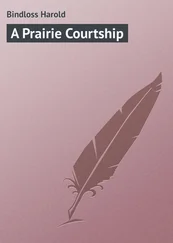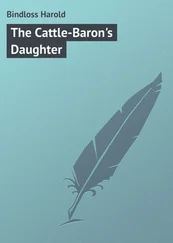“I want to tell you that I’m sorry,” he said.
The girl fancied she understood him, and it increased her anger, for the fact that this barbarian of the bush should venture to express pity for her was galling. Still, she had no intention of admitting it, and regarded him inquiringly with a half-contemptuous indifference which she had found especially effective with presumptuous young men in England. Somewhat to her astonishment it apparently had no result at all, for Alton returned her gaze gravely and without embarrassment.
“I don’t understand,” she said.
“I was hoping you would, because I felt I must tell you, and I’m not good at talking,” said the man. “I can’t help seeing that you are vexed with me.”
If Alton had intended to be conciliatory he had signally failed, because Miss Deringham had no intention of admitting that anything he could do would cause her anger.
“I am afraid you are taking things for granted,” she said.
Alton smiled gravely, and the girl noticed that he accepted the onus of the explanation she had forced upon him.
“I really don’t think you should be,” he said. “I can’t help being Tristan Alton’s grandson, you see, and we are some kind of relations and ought to be friendly.”
Miss Deringham laughed a little. “Relations do not always love each other very much,” said she.
“No,” said Alton. “Still, I think they should, and, even if it hurts, I feel I’ve got to tell you I’m sorry. If you would only take it, it would please me to give you back Carnaby.”
The girl almost gasped with astonishment and indignation. “That is a trifle unnecessary, since you know it is perfectly impossible,” she said.
She had at last roused the man, for the moonlight showed a darker colour creeping into his tan. “I don’t usually say more than I mean,” he said. “Now we shall never understand each other unless you will talk quite straight with me.”
Alice Deringham had not lost her discretion in her anger, and, since there was no avoiding the issue, decided it would be preferable to blame him for the lesser of his offences.
“Then,” she said coldly, “it was somewhat difficult to appreciate the humour of the trick you played upon us. You may, however, have different notions as to what is tasteful in the Colonies.”
Again the darker colour showed in Alton’s bronzed forehead, but he spoke gravely. “I don’t think that’s quite fair,” he said. “I am what the Almighty made me, a plain bushman who has had to work too hard for his living to learn to put things nicely, but I never came down to any meanness that would hurt a woman, and there isn’t any need for a dainty English lady to point out the difference between herself and me.”
“There may be less difference than you seem to fancy,” said the girl a trifle maliciously. “You are Alton of Carnaby.”
“Pshaw!” said the man with a little gesture of pride and impatience, which Miss Deringham was forced to admit became him. “I’m Alton of Somasco, and nobody gave it me. I won it from the lake and the forest that comes crawling in again—but I’m getting off the trail. I didn’t know your father was coming here, and hadn’t any notion who you were.”
“That’s curious, because he wrote to tell you,” said the girl.
Alton flushed a little, for he was somewhat quick-tempered, and too proud to be otherwise than a veracious man. “Well,” he said slowly, “I have the honour of telling you I didn’t get the letter. There’s a place called Somasco down in Vancouver.”
Miss Deringham decided that she had ventured sufficiently far. Indeed, on subsequent reflection she was forced to admit that she had gone farther than was quite seemly, which somewhat naturally increased her displeasure against the man. In the meanwhile she, however, made a little gracious gesture. “Then I don’t think the explanation was necessary,” she said.
Alton laughed a little, and held out his hand. “Do you know I’m thankful that’s over once for all, and now we can be friends,” he said. “There are lots of things I can show you in the valley, and a good deal more that you can teach me.”
Alice Deringham could not afterwards quite decide why she shook hands with him, for she had no intention of teaching him anything, just then; but she did, and felt as the hard brown fingers closed upon her own that the friendship of this curious man could in time of necessity be relied upon. In any case, and obeying some impulse, she shook off her chilliness, and asking questions about the district evinced a gracious interest in all he had to tell her, while presently induced by his naive frankness she smiled at him as she noticed him regarding her gravely.
“I presume a dress of this kind is scarcely suitable for the bush,” she said.
Alton laughed. “I wasn’t looking at the dress, though it’s a very pretty one,” he said. “You see, except my mother and Miss Townshead, I have never spoken to an English lady.”
“But you must have been very young when you lost her,” said the girl.
Alton took off his hat, and pointed to a hillside shrouded with sombre firs. “Yes,” he said quietly. “She sleeps up there, and in a little while my father followed her. He was lonely without her, and because of what she had done for him, proud of his countrywomen. He often used to talk about them.”
“And,” said Alice Deringham, “you wondered if he was mistaken?”
Alton made a little gesture that in a curious fashion implied a wide chivalric faith. “No,” he said gravely, “I believe he was right.”
Miss Deringham felt a faint warmth creep into her cheek, and it was not because the speech might have been deemed a personal compliment. She saw a little deeper into the man’s nature than that, and, if she had not, the tone of grave respect would have enlightened her. Then she turned with a little sense of relief as Deringham came out upon the verandah.
“I am pleased to see you and Mr. Alton have made friends,” he said, and the girl, who noticed a faint twinkle in his eyes, turned quietly and looked down the valley as she remembered one odious clause in the will.
She rose early next morning, and flinging the window open to let in the glorious freshness heard a commotion below, while as she wondered as to the cause of it several pairs of old boots went gyrating over the balustrade of the verandah. A dilapidated saddle followed them, and then a cloud of dust rolled up, while she saw the new owner of Carnaby appear somewhat scantily attired out of the midst of it. He had a brush in one hand and seemed disturbed about something.
“Where the brimstone does Mrs. Margery keep the scrubbing soap?” he said.
Nobody answered him, and he moved back into the dust, while Seaforth was coming up the stairway carrying a mop and pail when a big empty oilcan smote him upon the chest. He dropped the pail and leaned a moment, gasping and dripping, against the balustrade.
“You might notice where you’re throwing things,” he said.
The dust rolled more thickly, and Alton’s voice came out of it. “I hadn’t time to be particular, and a sensible man would have got out of the way of it. Don’t stand there, anyway, but help me fix this place fit for a lady before Miss Deringham gets up. Then you’re going through to the railroad with the new pack-horse to wire for Mrs. Margery after breakfast.”
“I don’t think I am,” said Seaforth. “Not on Julius Caesar, anyway. He will need a little more taming before I’m fit to ride him.”
“Then,” said Alton, laughing, “I guess you can shove him, because you’ll want a horse to bring up the things you’re going to wire Vancouver for, and Tom’s off with the teams up the valley. Fetch some more water, and start in with the scrubbing. I don’t want Miss Deringham to guess we’ve been doing anything unusual.”
Читать дальше












